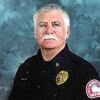There are two basic types of firefighters: natural and learned. Most are some combination of the two.
A natural firefighter is calm and cool under pressure with a common-sense mind that loses stress in the details of the work to be done. These linear thinkers are logical and orderly in their decision-making. Having a charismatic presence not always deserved, a natural firefighter is a leader.
Learned firefighters are those who work hard at everything they do. They have to understand to learn, and as a result are tenacious in their education and relentless in practicing skills.
They will repeat a task until it is flawless, and then do it again. They are respected for their unwavering commitment if not always for their compassion.
Regardless of where you fit on this behavioral range — some natural ability, some study — as a working firefighter you can certainly find reasons to limit your success. There are six basic ways firefighters sabotage their career progress. Here’s how those scenarios play out.
1. Ego on the badge
While such an attitude is reasonable in the initial stages of your career, excessive dependence on the honor and glory of the job will eventually wear you down. As it does, you will slowly lose perspective.
Little things will be blown out of proportion. Poor decisions will follow reluctant ones. Ultimately, the job will lose its enthusiasm for you, and you for it. Worse than a poor leader, you become a disgruntled follower.
2. Not a team player
To become a good firefighter requires hard work and a great deal of individual commitment. It requires training day and night, studying in between and focusing on just being here.
But you fail to understand the enormity of what is outside you; you remain focused on self rather than team. Those who have participated in team sports understand that the whole is greater than the sum of the parts.
You fail to appreciate the value of the team in the fire service. The comfort of fitting in and the satisfaction of doing your task well, which are a result of seeing your brothers and sisters above the accomplishment, passes you by.
3. Fail in pure competitive spirit
Success is the great laurel of competition. With it comes recognition, confidence and energy to do more. Endurance is its own reward. Handling failure is its test.
The inability to balance being the best and being bested will turn challenges into mistakes. Setbacks become excuses. To be great, a firefighter must have total appreciation for the game in whatever form and total understanding of its value whatever the price.
4. Waver in ethics
From the first night in quarters to your retirement party, this is your lodestone. Once your sense of value is reflected in your actions, you begin to acquire your moral character. Each of us develops this sense of right and wrong throughout our lives, and as firefighters it is constantly tested.
It is why some firefighters make poor entrepreneurs but great leaders. Ethics is the summation of this decision-making system. And if it isn’t the path to righteousness, it certainly makes for better decisions.
5. Never make a turn
Up until now you have remained resolute in focus and unrelenting in purpose. Throughout your career, such determination has served you well, but as you grow confident in your abilities, questions seem to diminish momentum.
These pauses in progress are met with impatience. Suspicious of new information, stubborn against change and relying on timeworn techniques, you have no need for advice and are deaf to any point of view other than your own. You don’t have time to stray from your personal true north, as this may cause a delay in the drive to prominence.
6. Lose your goal
As the physical enthusiasm of being a firefighter wanes with time and tragedy, somewhere in the middle of your steadfast commitment you lose purpose. You administer care to others while losing it for yourself. You have forgotten the fulcrum in your life.
Existence is becoming unbalanced as you are at odds with both work and home. Doubt, denial, fatigue and pain dull the senses and it does not help to alter them artificially.
An occasional beer is now more, as one drink is too many, while three is not enough. You have ceased earning respect and are becoming someone you don’t like. To lose purpose is to begin quitting.
Lessons learned
The lessons here are straightforward.
Know yourself well enough to recognize your challenges. Realize the importance of your fellow firefighters and compete to make everyone better, including yourself. Remain steadfast in your beliefs, but open to change when justified.
And finally, know that your life as a firefighter has a profound purpose, a calling far greater than you. Accept this with grace, humility and the responsibility that comes with having been chosen for this profession. This in itself is its own reward.
Keep these teachings close at hand throughout your career regardless of the success you achieve. The result will be the making of a great firefighter regardless of rank or personal accomplishment.












